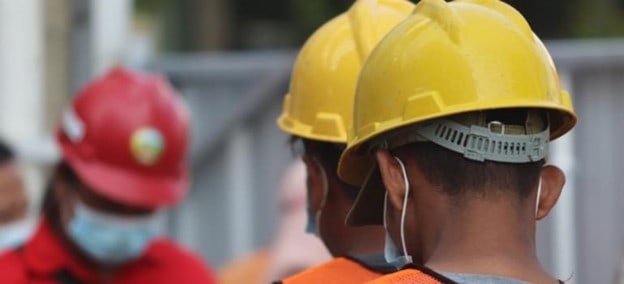When you are in the process of purchasing a new home, you should know that you have the right to conduct a home inspection before buying. A home inspection is highly recommended. It doesn’t matter if you have purchased five homes or are buying your first one. From finding out whether a property is overpriced to seeing whether it is safe for you to live there, there are many reasons why the home inspection contingency is one of the most commonly seen contingencies in purchase and sale contracts in real estate.
Peace of Mind
A home is one of the most significant purchases and investments you will make in your lifetime. One of the biggest reasons why conducting a home inspection before buying is important is the peace of mind it can give you.
Above all else, a home inspection’s purpose is to ensure that the home is substantial and safe for living. When you decide to skip having your potential home undergo a check, you are, in turn, creating additional and unnecessary anxiety and stress. Performing a home inspection is supposed to give you a certain amount of peace of mind that you’re purchasing a solid and safe home.
It’s Relatively Inexpensive
Another way to look at the reasoning for conducting a home inspection is that there really is no financial reason not to. With how much money it could potentially save you, a home inspection doesn’t cost a lot of money. Most home inspections will range between $300-$600 depending on the size of the home and what you want to inspect. If you are ready for an investment as large as buying a home, the small amount of money you need for a home inspection shouldn’t be an issue. Especially since that small amount can stop you from spending all that other money in vain.

Buyers who decide not to have a home inspected before they buy, can regret that decision in the future. This is especially true when they find out a necessary repair (that costs more than the inspection would have) is waiting for them in that home.
Reveal Possible Pest & Insect Problems
Pest and insect infestations have the potential to destroy a home. Of course, the likelihood of having a pest or insect problem will vary depending on your location. There are also many types of pests and insects that can create many problems in a home. Termites, for instance, can be a huge problem if not discovered on time. Termites cause approximately five billion dollars’ worth of damage yearly to properties all around the US. Some home inspections will include this form of inspection in the price, and others will not. Make sure that you remember to ask your inspector whether they offer these services and if they can recommend any pest inspectors.
Uncover Safety Issues
You should look at the home inspection as an opportunity to thoroughly investigate the home you’ll potentially be purchasing. Some issues you might discover during a home inspection are standard. These include problems such as:
- improper electrical wiring,
- worn roofing,
- inoperable windows,
- plumbing deficiencies.
It’s important to understand that a good home inspector will find one or more issues with every home. Even if it’s a newly built one. You must remember that a home inspection’s purpose is not to ensure that there is absolutely no fault with any single thing in the home. The point is to see if any of the issues cross a line where they start to pose a safety concern or call for a costly repair. Some of the issues you find may not be a big deal, while some may be serious safety issues.

Experienced professionals from Teddy Moving and Storage urge you to remember the importance of inspecting the home’s structural soundness. If there are hidden faults with the home’s structural integrity, heavy-duty projects such as moving heavy furniture into the house can be a safety risk for you and the movers you employ.
Price Negotiations
Sellers can make a mistake when pricing their homes. Therefore, a home inspection before buying can tell you if that mistake was overpricing the home. However, you should remember that the home inspection’s purpose is not to get a better price on a home because of a few minor issues you found during it. But if you do discover one or more major problems during the inspection, it can be appropriate to try and renegotiate the terms of the original accepted offer. This is primarily based on whether that problem will cost you a lot of money for repairs in the future.
You can use deficiencies you discover during the home inspection as a reason for negotiating a reduction in the price. This depends on the type of financing and terms of the original contract.
Provides an “Out”

A home inspection can sometimes stand a standstill in real estate transactions. In some situations, a buyer does not feel comfortable with the home inspection findings. This causes them to get “cold feet”. This should not scare you, however. Even if the results of a home inspection are very bad, it’s still an excellent way for you to avoid home buyer’s remorse. If you don’t want to regret buying a home, you must be sure of your decision. And so, if the results of a home inspection make you unsure, they at least provide you with an “out”. They give you a reasonable explanation for not going through with a sale you will regret later.
Final Thoughts
As we hope you can now see why performing a home inspection before buying is crucial. And for multiple reasons. Remember to work with your inspector and make a checklist of everything you want to be inspected. A home inspector is still human and can also miss certain issues during a home inspection. However, because of their expertise, they will be able to inspect the home in much more detail than you and your real estate agent did during your first visit.

